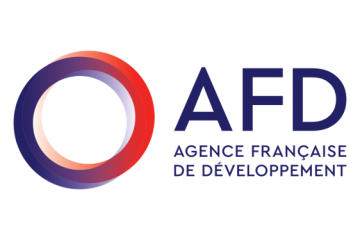Meta-evaluation of rice projects with regard to climate issues (mitigation and adaptation) World
![]() AGRICULTURE
AGRICULTURE ![]() ENVIRONMENT
ENVIRONMENT

Services: Strategic analysis and foresight, Technical and economic advice, Monitoring, evaluation and capitalisation
Countries: World
Dates of intervention: 2022/10 - 2023/03
Amount executed: 48 000 €
Total amount of the service: 48 000 €
Main backer: French Development Agency - Client
Other backers: French Association for Water, Irrigation and Drainage
Main beneficiary: French Development Agency
Support provider: SalvaTerra
Experts: Olivier BOUYER, Eva HAENTJENS
Certificate of satisfactory executionSynthèse bibliographique - riziculture irriguée et changements climatiquesTypologie de projets riziculture irriguée de l'AFD Benchmark des pratiques d'autres bailleurs sur l'analyse climat des projets de riziculture irriguéeMener les analyses relatives à l'adaptation au changement climatique d'un projet de riziculture irriguéeDéfinition des scénarios "projet" et "de référence" pour les bilans GESIdentification des données à utiliser pour remplir l'outil bilan GES NEXTIndication pour l'analyse de l'alignement des projets avec l'Accord de ParisIdentification des activités de renforcement des capacités de planification, monitoring et recherche à l'échelle nationaleElaboration des termes de références pour les analyses CC à mener pendant l'instruction d'un projet de riziculture irriguée
Context of the service
Rice is grown in more than 100 countries under various conditions. The International Rice Research Institute (IRRI) classifies rice systems into four families: deepwater, lowland rainwater, plateau rainwater and irrigated, often present in the same watershed.
Rice cultivation is essential for food security in many countries and generates methane emissions, accounting for 12% of global CH4 emissions in 2000.
Improved agricultural practices, including water and agricultural residue management, could limit these emissions.
The aim of this study was to systematize the development of carbon assessments and climate vulnerability analyses for irrigated rice projects financed by AFD.
It provided for operational and methodological support (calculation tools, indicators, databases, etc.), with tests on two case studies and the production of various operational procedures.
Services provided
The services rendered consisted of:
- Literature review to characterize irrigated rice farming systems (according to agroclimatic zones, cultivation practices, GHG emission profiles and climate change impacts on these systems);
- Analysis of the adaptation and mitigation challenges of 20 rice projects financed by AFD;
- Benchmarking of other donors' practices on the climate analysis of their rice projects (alignment with the Paris Agreement; carbon footprint tools; climate finance accounting methodology);
- Operational manual for carrying out a vulnerability and adaptation analysis of a rice project;
- Definition of the project scenario and the reference scenario to carry out the carbon footprint of a rice project;
- Identification of the data to be used to complete the NEXT carbon footprint tool on a rice project;
- Indications for the analysis of the alignment of a rice project with the Paris Agreement.
Summary of the service
Meta-evaluation of rice projects with regard to climate issues (mitigation and adaptation): Characterization of irrigated rice farming systems; Analysis of the adaptation and mitigation issues of rice projects financed by AFD; Benchmarking of other donors' practices on the climate analysis of their rice projects; Operational manual for the vulnerability and adaptation analysis of a rice project; Guidelines for the NEXT carbon footprint tool (definition of scenarios, identification of data).